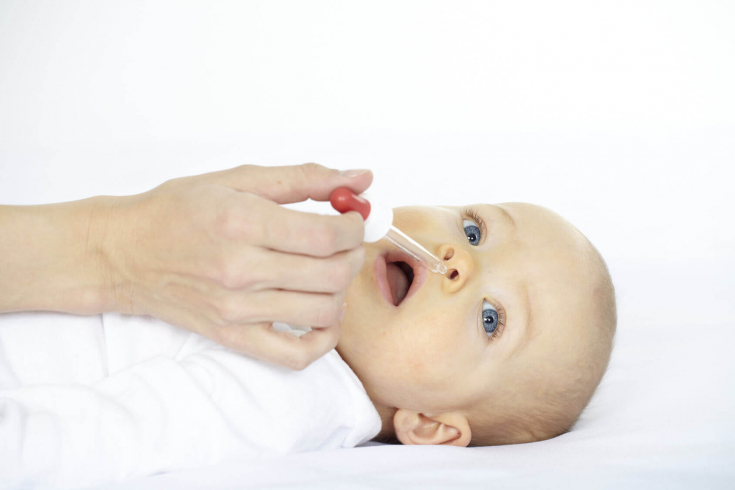Autumn has come, and not far off – winter. Which means flu season is coming. This disease is dangerous not only for adults, but also especially dangerous – for small children. Influenza in infants can cause serious complications, and delay in treatment or its absence can even lead to the death of a child. How to recognize the flu in a child in time? What should be done first?
The editors of estet-portal.com will talk about how to recognize the flu in time, what to do and how to treat it, as well as – how to prevent a child from getting sick in a dangerous season.
- Influenza in infants: what is dangerous and can it be avoided
- Influenza in infants: characteristic manifestations of the disease
- Influenza in infants: how to treat correctly
Influenza in infants: what is dangerous and can it be avoided
As with adults, influenza in infants can cause complications – central nervous system, cardiovascular, hearing or vision. So, a considerable part of children who have had the flu and who have not received proper treatment on time receive complications in the form of otitis media. In especially advanced cases, this leads to hearing loss or reduction.
For more useful information, visit our Instagram page!
How can I avoid the flu in my baby?
First of all, during the cold season, do not walk in crowded places. At home, ventilate the child's room more often so that bacteria do not accumulate in it.
Read also: Child has a headache: main causes

And another excellent prevention of influenza is breast milk – it has many protective substances in its composition, contains antibodies to many diseases. No wonder they say that children who grew up on mother's milk will be much healthier than those who ate a special substitute mixture.
Influenza in infants: characteristic manifestations of the disease
The first couple of days after infection – this is the incubation period. That is, there will definitely be no symptoms, the child feels as usual. However, after a few days, the condition deteriorates sharply. First of all, the temperature suddenly rises – up to 39, and sometimes – and 40 degrees.
Other symptoms include:
• decreased appetite, possible vomiting;
• dry cough;
• runny nose;
• rash;
• convulsions.
The child also feels chills, pain in the goal, but since he is small, he cannot say about it yet. In especially severe cases, the body is affected by toxins, which leads to the appearance of hallucinations,

There are several forms of how the flu can occur in a child:
1. Light – there is a temperature not higher than 37.5, cough, the mucous membrane of the throat is irritated.
2. Moderate – the temperature rises to 39-39.5, breathing is difficult, there is a cough, there may be vomiting and nausea, there is weakness.
3. Heavy – the temperature rises to forty degrees, the condition is critical.
4. Hypertoxic – the disease develops rapidly, the temperature is over forty, there is a loss of consciousness, convulsions, there may be bleeding from the nose.
It is very important to start treatment on time andnot to start!
Influenza in infants: how to treat it correctly
Treatment of influenza in infantsdepends on the form of the disease and the severity of the course. In any of the cases, you should not self-medicate, you should immediately consult a doctor to avoid complications.
Moderate and mild forms of influenza in infants do not require a hospital, treatment will take place at home. The main thing – is to follow the regimen and recommendations prescribed by the doctor. The baby should be in a warm room, which is regularly ventilated, follow a light diet. At the same time, do not stop feeding him with milk – After all, this is the best support for a weakened body. Here's what to avoid – so it's public places and crowds of people.
 Child with the flu can get a stuffy nose, making it difficult to feed. The baby may refuse to breastfeed. Then you have to express and water the baby with a pipette or a glass.
Child with the flu can get a stuffy nose, making it difficult to feed. The baby may refuse to breastfeed. Then you have to express and water the baby with a pipette or a glass.
If the doctor does not forbid, you can additionally give a decoction of lime blossom or wild rose. It is necessary to clear the nose of mucus with a solution of sea salt three times a day.
requires prompt and careful treatment. Medical supervision – necessarily. And following his advice, too. Therefore, at the first symptoms, call the doctor – then you will avoid serious complications that this disease often causes, especially its modern forms.






Add a comment